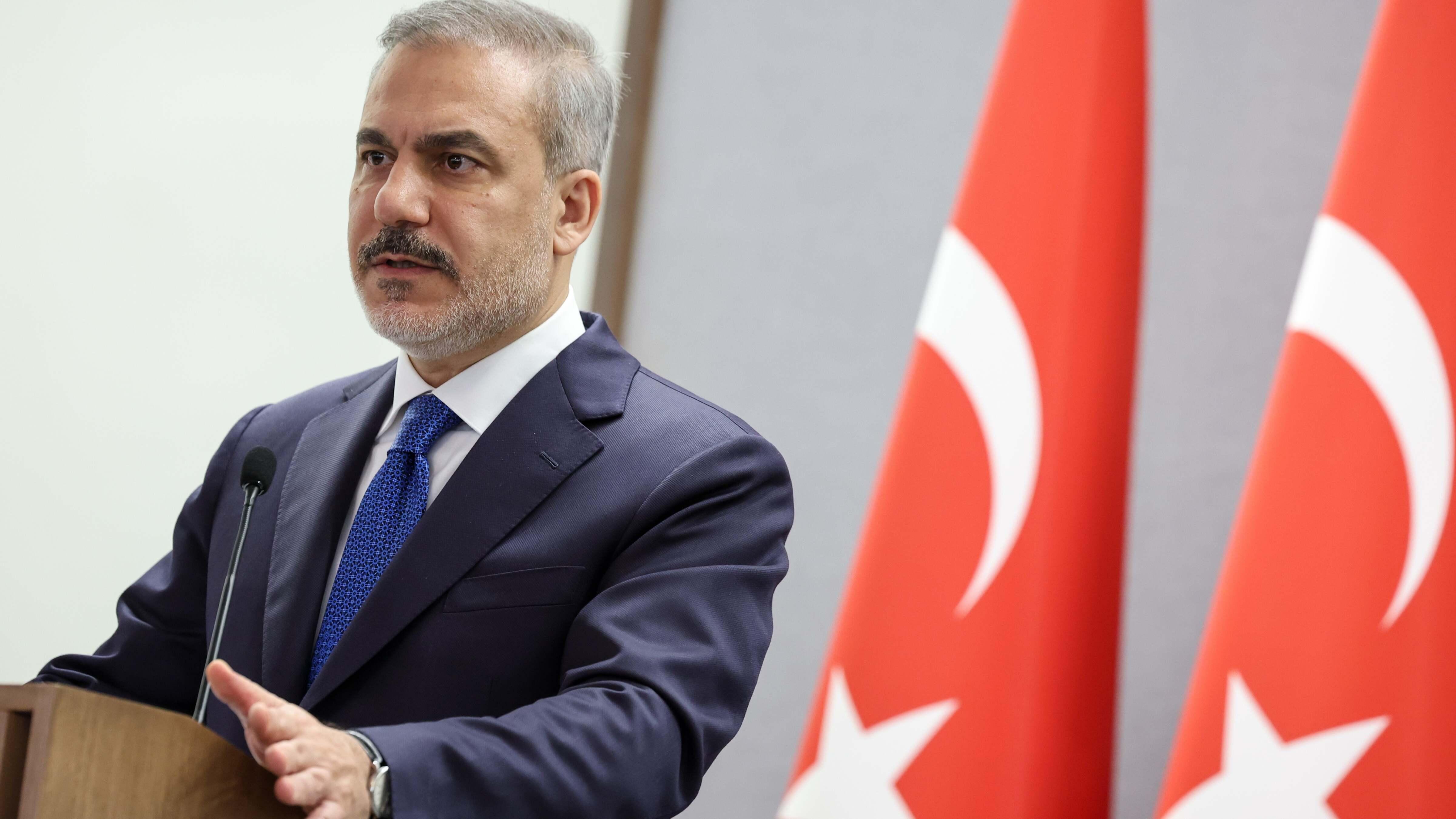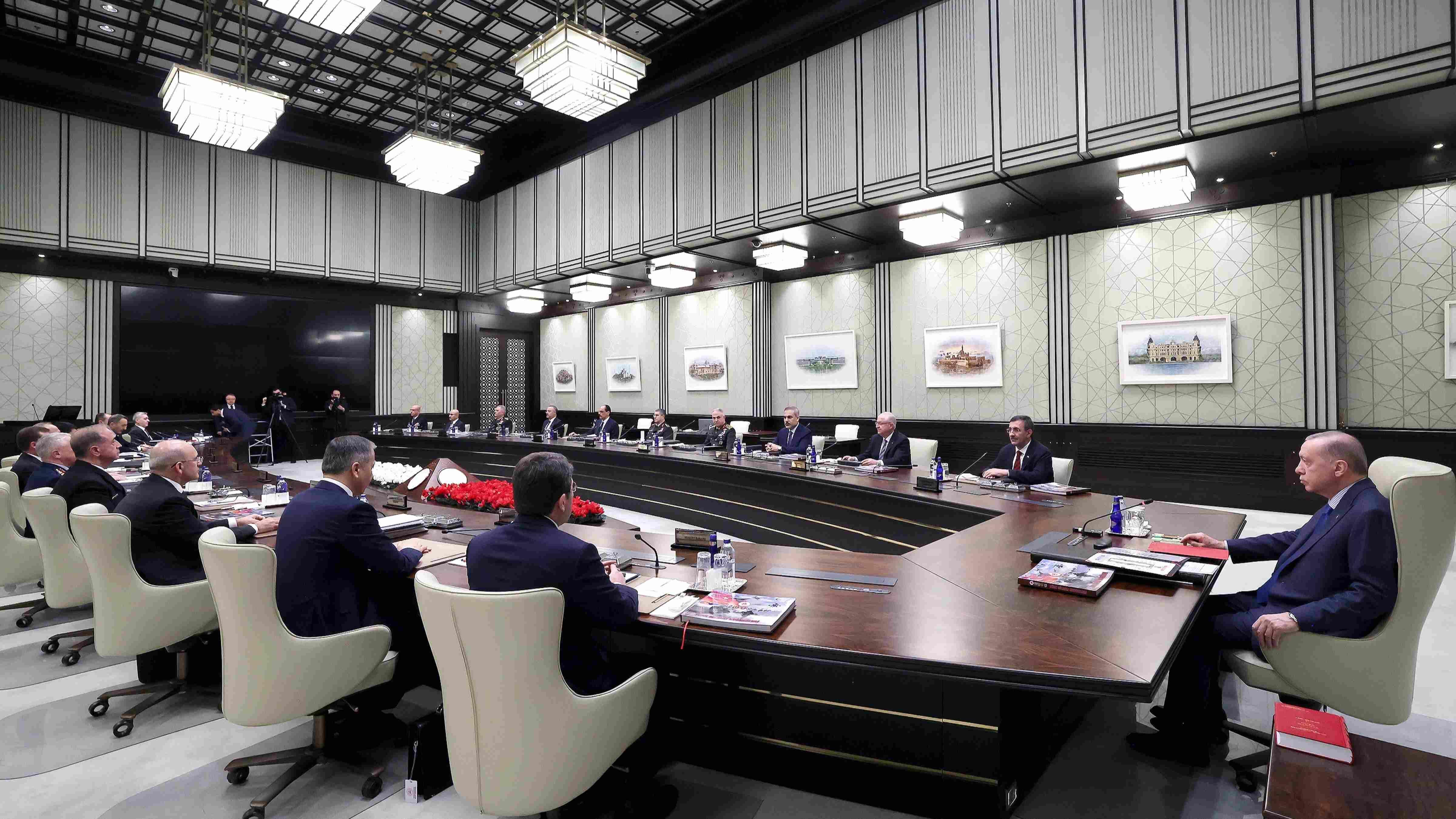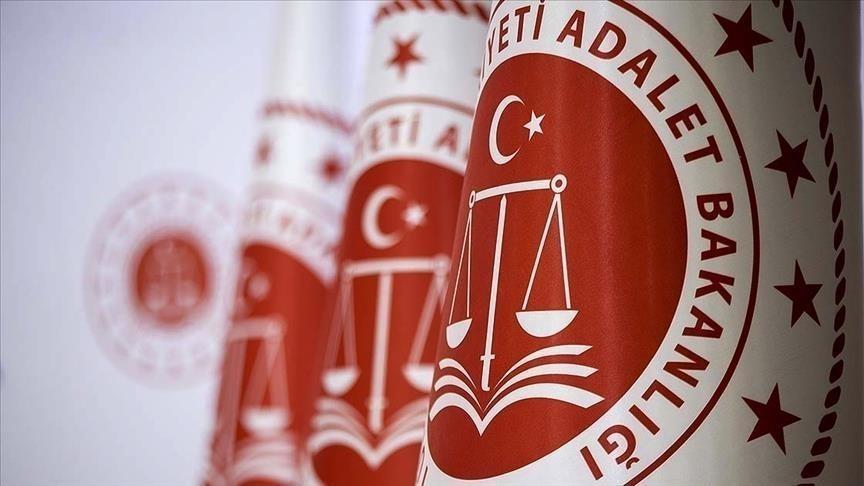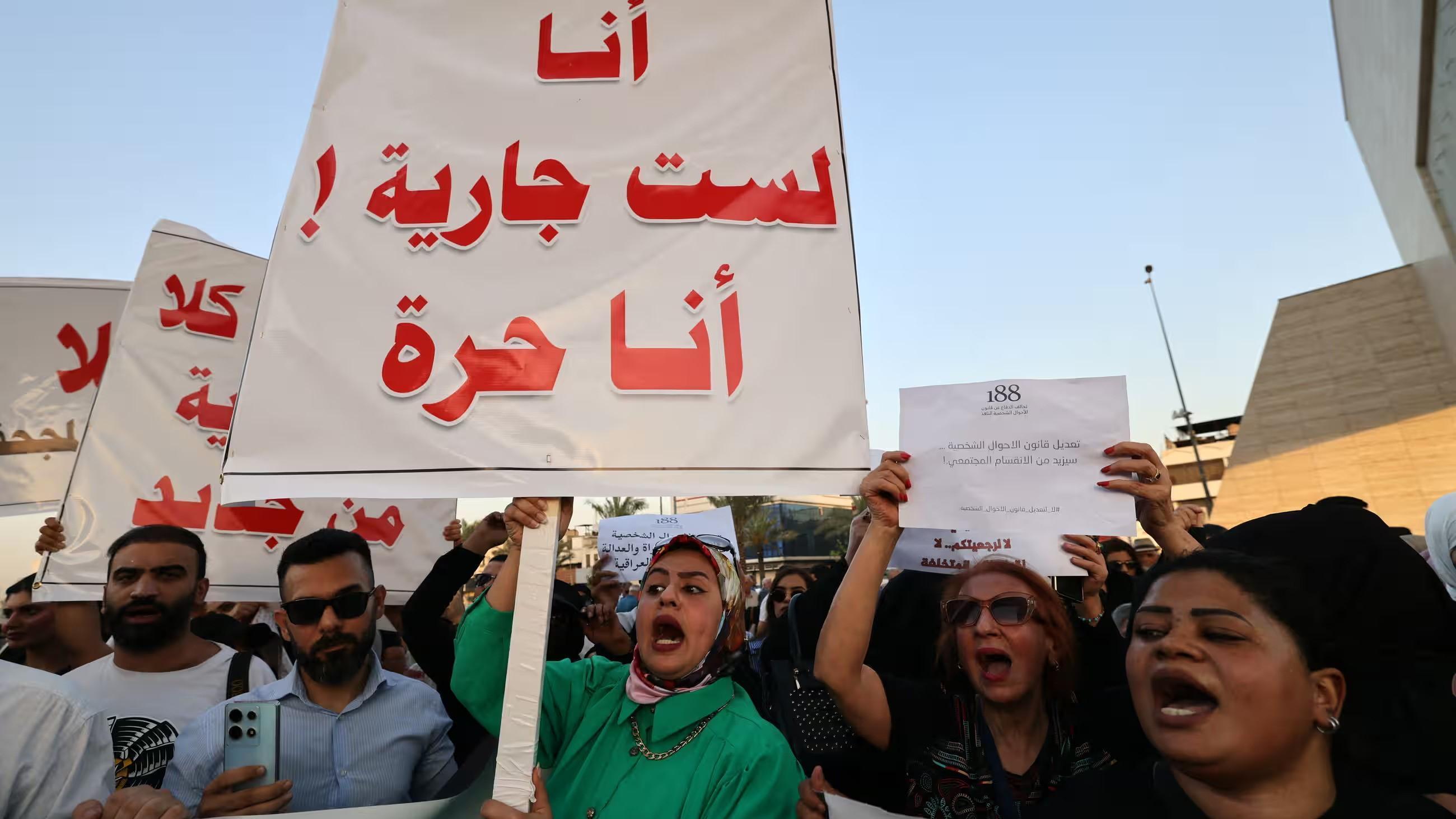Kurds OK with federalism for now: BDP
ANKARA - Hürriyet Daily News
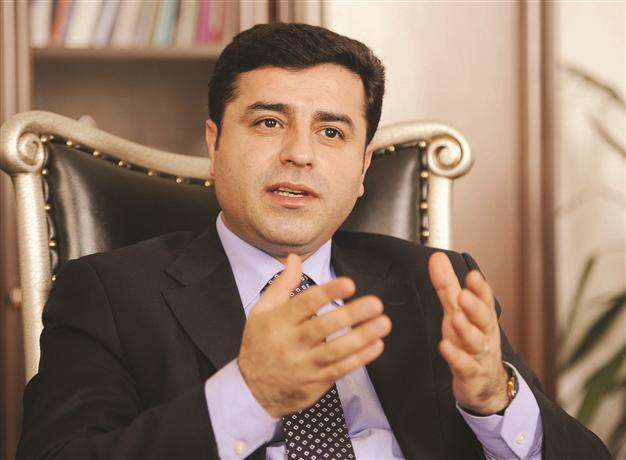
Autonomy or federalism is inevitable for Kurds, BDP’s Demirtaş says. DAILY NEWS photo, Selahattin SÖNMEZ
While Kurds in the Middle East deserve to run an independent Kurdish state they would rather opt to live within their existing borders under a federal or autonomous model for a number of reasons, a leading Kurdish politician has said. Co-chairperson of the Peace and Democracy Party (BDP) Selahattin Demirtaş also described the Kurdish people as among the most important power players in the region and a group that Turkey should better align itself with.“Kurds will never accept living under the direct rule of a specific country or nation. Their will to establish an independent state and [to draw] their own borders is perhaps not very strong at this time.
Attempts for an independent state are not strong in Syria and the other four countries [where Kurds reside],” Demirtaş said at a meeting with representatives of the foreign media yesterday. “However, achieving the right to self-govern under an autonomous or federal model with an understanding of peaceful co-existence is inevitable.”
‘Future of Kurds’
With 29 deputies and a pro-Kurdish agenda, the BDP stands as the political party with the most representatives for Kurds in Turkey, especially in the southeastern region where the population is predominantly Kurdish. While the BDP purses democratic means to realize the Kurds’ aspiration to self-govern, the outlawed Kurdistan Workers’ Party (PKK) has been using terrorist methods since the early 1980s.
Demirtaş conceptualized what he called “the future of Kurds” by using Foreign Minister Ahmet Davutoğlu’s rhetoric based on “his dreams of seeing Turkey as the pivotal country in the Middle East which sets the order and embraces all regional peoples under an Ottoman-like umbrella.”
“We respect Davutoğlu’s dreams, but he should see that people in the region have dreams too and they are very different to his. Kurds, Arabs, Persians and other people do not want to live under Turkey’s umbrella,” Demirtaş said.
Demirtaş said he met with Davutoğlu once and expressed his opinions about Turkey’s foreign policy towards the Middle East in a very blunt manner, telling Davutoğlu the collapse of foreign policy in Syria and elsewhere was due to the foreign minister’s insistence of trailing 75 million people behind his dreams.
“I told him that he was misreading history and the future. Turkey is an important regional country and will remain so in the future, but other non-state political actors, like Kurds, are also very important,” he said, adding that each and every people in the region want to establish their own “free future.”
Demirtaş advised the Turkish government to seek co-operation and strategic ties with Kurds in Iraq, Iran, Syria and Turkey. “Because Kurds are an undeniable power in the region the creation of Kurdistan is an undeniable reality. Whether this Kurdistan will be an independent state or a federal-autonomous region or will set up different [administrative] models will be determined in the future according to the political developments,” he said.
For the BDP leader all options, including an independent state, are on the table, but the status Kurds most seek is an autonomous or federal model within their existing borders. “Don’t Kurds have the right to an independent state? Of course it’s their right. I am not saying this because Kurds have no right or conjuncture is not suitable [for a state]. We are talking about the insignificance of the borders. We, Kurds, have the right to self-government, but we do not want to realize this under a nation state model at the expense of causing new hostilities with other peoples. We believe federal and autonomous models should be discussed.”


